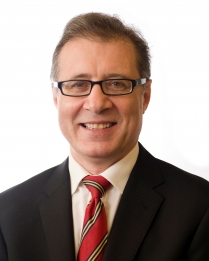Mark Pawsey MP discusses how we can support development in Rwanda
Mark Pawsey is the MP for Rugby. On the 20th anniversary of the Genocide he reflects on his experience of visiting Rwanda with the Conservative Party’s Project Umubano, a charity supporting development in the country.
It was the end of a warm evening at the textile factory where I had spent the day talking to the marketing manager about their product range and pricing. We had just finished playing a football match, where my team was made up of colleagues from the project I had joined, and we were up against the works’ team. From memory, we scraped a two all draw. We were all shaking hands with the opposition when one of their players asked me in broken English, ‘What can you do to help us?’
The question bounced around my mind for several days afterwards. I was in Kigali in 2008 with the Conservative Party’s Project Umubano, which in Kinyarwanda means ‘friendship’, and on the second of what became an annual visit. It took place for volunteers wishing to help in a country needing help. Never having visited Africa before and aware that appalling events had taken place there some years previously, I was keen to find out more, to understand more about international development and put the experience I had gained running a small business to the benefit of a developing economy.

Mark Pawsey MP
One of the companies I spent time with in Rwanda was operating the textile plant, and the hostilities of only 14 years previously were clear from the smoke stains and damage to the factory walls. Along with the time spent in businesses (and in addition to the textile factory I met a manufacturer of wheelbarrows, a company making toilet rolls, and other entrepreneurs), the party visited memorials to victims of the Genocide and built up a picture of what happened in 1994.
The world now knows that more than 800,000 Rwandans, mostly from the minority ethnic Tutsi group were killed by their Hutu neighbours, egged on by messages over the local radio station. At the time, the international community looked on, with the UN lacking in will to respond. As a result, the atrocities were particularly gruesome, with most murders carried out by machete on victims often known to the murderers. In the Memorial to the Genocide at Murambi in southern Rwanda the skeletons and mummified bodies of some of the thousands of people killed there are on display. This was the site of a massacre when Tutsis were lured into a school where the water was cut off, and the school was later attacked by Hutu Interahamwe militiamen. Many tried to run away but were caught and, to prevent them doing so again, their Achilles heels were slashed, something which is today clearly evident on many of the bodies that are laid out.
Twenty years on, graves of victims are still being found and the number killed is being revised upwards. UN Secretary General Ban Ki Moon has reflected on how the Genocide has left an indelible mark on the country, shaping its domestic and foreign policies, on occasions with restrictions on political activity that we in the UK would find hard to accept. However, the years passed have seen peace and stability, which has enabled the economy to grow and living standards to rise. My last visit with the project in 2012 was to join a team of planning professionals looking at how built up areas could accommodate increasing population levels and how rural communities can work better together than as subsistence farmers dotted about the countryside.
As for the answer to the question about how an individual can help; it is, on returning to the UK, to talk about the challenges Rwanda continues to face and to ensure that the country gets the support it needs and deserves. And at a much lower level to help the game of football grow in Rwanda by collecting unwanted kit from youngsters in the UK who have outgrown or no longer wear it – often because the sponsor has changed or their favourite player has been transferred – and sending it out for young players there. There is some comfort in the fact that sport can thrive and bring people together, even where the most appalling events have occurred.
Find out more:
- 7 April marked the start of a 100 day period of commemoration to mark 20 years since the Genocide in Rwanda.
- Read about the life story of Eric Murangwa Eugène MBE, who played for Kigali’s top football team. During the Genocide in Rwanda his fellow players protected him from the killing. Today Eric lives in the UK and runs an organisation which uses football to promote tolerance, unity and reconciliation among Rwandan youth.
The HMDT blog highlights topics relevant to our work in the field of Holocaust and genocide awareness and commemoration. The views expressed are those of the author and do not necessarily represent the views of HMDT.